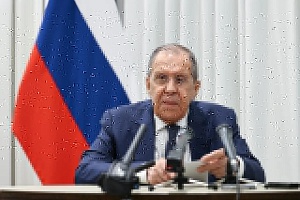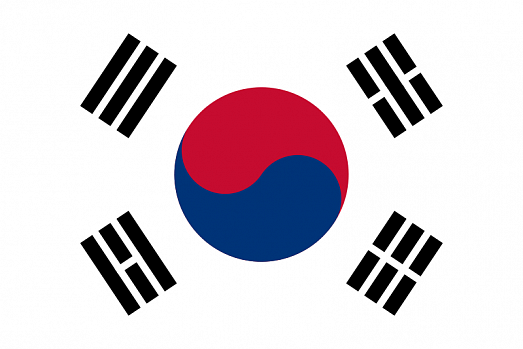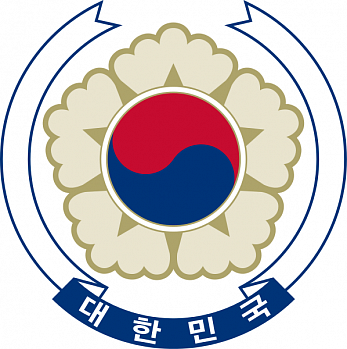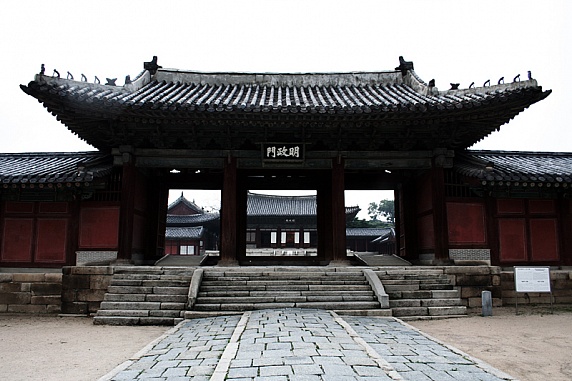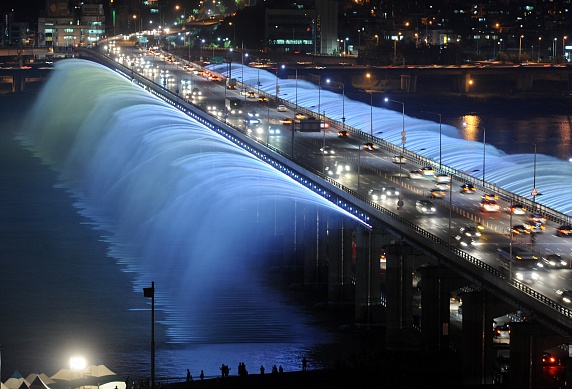 Республика Корея
Республика Корея
Foreign Minister Sergey Lavrov’s remarks and answers to media questions following the SCO Foreign Ministers Council meeting, Astana, May 21, 2024
Greetings, everyone.
The SCO Ministerial Council meeting was quite productive, and we accomplished quite a lot. We were appalled by the tragic news about the crash of a helicopter that carried President Ebrahim Raisi, Foreign Minister Hossein Amir-Abdollahian, and other senior Iranian officials from the Azerbaijan-Iran border back home. At a group meeting of the heads of delegations with President of Kazakhstan Tokayev and during the Ministerial Council meeting, we expressed our deepest condolences and solidarity with the Iranian people, as well as confidence that Tehran will continue its foreign policy, including with regard to its active participation in the Shanghai Cooperation Organisation.
We strongly support the SCO. In the Foreign Policy Concept approved by President Vladimir Putin on March 31, 2023, the Organisation is designated as a priority in our activities in the international arena. It is gratifying to know that all member countries, without exception, share this approach. We reaffirmed our willingness to continue enhancing our interaction at multilateral forums, including the UN, to expand cooperation with our partners such as the EAEU, the CIS, the CSTO, ASEAN, and to continue to deepen our contacts with BRICS.
We share the opinion that the SCO remains one of the supporting pillars of the multipolar world order. It is well positioned to become a driving force behind transforming Eurasia into a single continental space of peace, stability, mutual trust and progress. We covered this extensively today. The issue is about uniting the potential of all the entities in the vast Eurasian space, harmonising their programmes, primarily in matters of expanding the economy, infrastructure, and logistics, as well as security. Security can be reliably ensured only by the Eurasian countries themselves, without the intervention of extra-regional forces.
We observe such attempts on the part of the United States, the European Union and NATO, which strive to assume responsibility for everything that happens in the region. Plainly speaking, they tend to interfere in the processes on the entire Eurasian continent. In its western part, they have taken over and completely privatised the OSCE, in which they declared the North Atlantic Alliance the main organisation which everyone must obey. They are taking practical steps in this direction, including unleashing a war against us using the Ukrainian Nazi regime as a tool.
The same applies to Eurasia’s eastern part to which the alliance is openly moving significant portions of its infrastructure and is cobbling up small-configuration military blocs based on its own model, such as AUKUS, unprecedentedly large exercises by the US-Japan-Republic of Korea trio, which include the nuclear component. This, too, suggests certain thoughts. The DPRK has recently expressed serious concern about provocative actions by the United States and its allies in the region that are aimed at escalating the situation to the point of a hot phase. We do not rule out the possibility that these are the plans Washington and its satellites are hatching when they try to incite unrest on the Korean Peninsula.
In other parts of the Eurasian continent (Central Asia, the South Caucasus, Moldova) - everywhere NATO and US-led EU are trying to introduce their entities and to make these countries follow their rules, and to implicate them into anti-Russian activities. They are doing so both in terms of severing economic ties with Russia under the pretext of complying with secondary sanctions and penetrating into the sphere of security and law enforcement agencies. There are attempts by the US-led collective West to assume control of the entire Eurasian continent. We have discussed this today.
We are all aware of the importance of intensifying the work of the SCO, considering its weight and role in Eurasia, and its partners, including the OSCE, the CIS, the EAEU, and ASEAN. It is also home to the GCC. We believe it is important to leave the process of normalising relations between the Arabs and Iran to these states, without attempting to impose any outside recipes. The Palestinian-Israeli conflict is also taking place on our continent.
Developing common approaches to ensuring Eurasian security and cooperation by the countries of this continent is a crucial goal. We underscored that the Shanghai Cooperation Organisation could well catalyse these processes with the involvement of other partners in the region.
We discussed a number of proposals that are being drafted upon the instructions of the heads of state concerning comprehensive modernisation of the SCO activities, improvement of the functioning of its bodies, including a boost to the work of the Secretariat and the Executive Committee of the Regional Anti-Terrorist Structure (RATS). We agreed to create a comprehensive centre for countering modern challenges and threats at the RATS, which will accommodate mechanisms for cyber security and countering organised crime.
Additionally, an anti-drug centre will be set up in Dushanbe. An agreement to coordinate activities will be concluded between it and the universal centre for countering challenges and threats, given the direct and close link between drug trafficking and the financing of terrorism. We are drafting these decisions for the leaders who will meet in Astana in July.
With regard to expanding our interaction with our dialogue partners and observers, the SCO has two observers and 14 dialogue partners. Recently, Laos and Algeria have applied for partner status. We discussed improving the efficiency of interaction with these countries within the SCO Plus format. A separate dialogue in this format will be held at the Organisation’s summit in Astana in July.
We exchanged views on the key international issues. We expressed condolences in connection with the terrorist attack on the Crocus City Hall concert venue and the death of Iranian diplomats following the Israeli strike on the Iranian Consulate in Damascus. This is a flagrant violation of the Vienna Convention, which guarantees the inviolability of all diplomatic and consular premises.
We discussed the settlement in the Middle East and arrived at the common opinion that achieving stability in this region of the Eurasian continent is impossible without the establishment of a Palestinian state. However, Israel and its ally, the US, are intentionally prolonging the resolution of this issue.
We supported the idea of resuming the activities of the SCO-Afghanistan Contact Group. This is a useful mechanism, which allows us to exchange views on how to continue normalising the situation In Afghanistan and helping the Afghan authorities build an inclusive state that represents all ethnic and political groups.
Work is underway on the documents to be endorsed by the leaders, including the programme of cooperation on countering terrorism, separatism and extremism in 2025−2027, the SCO anti-drug strategy for 2024−2029 and the programme for its implementation. The meeting again confirmed our common desire to expand areas of cooperation within the SCO. The economic dimension covers the drafting of documents aimed at deepening cooperation in energy, transport, logistics, environmental protection, international information security, sports and healthcare, which are highly relevant now. Russia is actively helping achieve practical results in all of these areas.
Question: Currently, the SCO has more than 20 countries in its portfolio, including observers and dialogue partners. The decision on the accession of Belarus to the SCO is expected to be made at the upcoming summit in July. What other countries are closest to becoming full-fledged SCO members?
Sergey Lavrov: I did not mention this but the Foreign Minister of Belarus has taken part in the current meeting from the very start, though not on a permanent basis for now. Starting from the July summit, Belarus will become a full-fledged SCO member. President of Belarus Alexander Lukashenko will take part in all events of the Astana summit without exception. The Belarusian minister attended our discussion. In conclusion, he made remarks, thanking everyone for the active support of Minsk’s accession to the SCO.
As for the future prospects of the SCO’s expansion, as I mentioned earlier, there are two observer countries – Afghanistan and Mongolia. Together with China and our other partners, we believe that Mongolia is the obvious next candidate for SCO membership. If you look at the map, you will see that Mongolia fits seamlessly into the SCO space. We will encourage our Mongolian neighbours to make this decision, and all SCO members unanimously support it. Another 14 countries hold the status of dialogue partners. Laos and Algeria have applied for this status as well. So, the process is ongoing.
As our ties with these countries develop, they may apply for full membership after holding the statuses of dialogue partners and observers. Personally, I find this scheme somewhat cumbersome. Therefore, as we modernise the SCO, its rules and standards, we will focus on streamlining this process. I hope we will receive support.
Question: Did the Russian delegation engage with their counterparts during the meeting? Do you expect to see changes in Iran’s domestic and foreign policy following the most recent tragic events? How can these developments affect bilateral ties?
Sergey Lavrov: I met with Mehdi Safari, head of the Iranian delegation and deputy of late Iranian Foreign Minister Hossein Amir-Abdollahian, and he confirmed that our relations will remain unchanged.
Iranian Ambassador to Russia Kazem Jalali who met with President Vladimir Putin and representatives of our military and rescue bodies on May 19 also said that no changes are expected in Iran’s foreign policy, including the promotion of partnership with its neighbours, the SCO among others.
Frankly, I see no reason to speculate about changes in the foreign policy of the Islamic Republic of Iran. On the contrary, the head of the delegation, Deputy Foreign Minister Mehdi Safari, who is attending the SCO meeting has confirmed an unwavering interest in implementing a series of practical projects in the sphere of transport and energy, which had been agreed upon by the presidents and are very much in demand in order to foster growth in the Islamic Republic of Iran and to expand the North-South corridor.
Question: On May 19, the helicopter carrying the President of Iran crashed in the northeastern part of that country. The causes of the tragedy are being investigated. It is known that the President was flying on an American Bell-212 helicopter. Since Iran is under sanctions, spare parts for the helicopter were not available. Can we assume that this fact was detrimental for maintaining the helicopter’s airworthiness and could have caused the tragedy?
Sergey Lavrov: Former Foreign Minister of the Islamic Republic of Iran Mohammad Javad Zarif stated this clearly. He came up with this theory and, in fact, accused the United States of jeopardising human lives by imposing sanctions that include a ban on spare parts for US-made aircraft. The Americans are denying that.
As a matter of fact, other countries on which the United States has imposed sanctions do not receive spare parts for US-made equipment, including aerial. Therefore, the mantras that we keep hearing from the West that their sanctions are designed to mend the ways of the specific governments and do not affect the interests of individuals are an outright lie, which goes to show once again that the West’s woeful unreliability and inability to honour agreements in any sphere, be it trade, the economy, investment, or finance, has become proverbial. This lack of reliability can be clearly seen if you look at the quality of the US-made civilian aircraft (I’m referring to unending scandals involving the Boeing aircraft).
In this case, we are talking about deliberate damage to ordinary citizens who use transport. Lack of spare parts means low safety. That is precisely why the Ministry of Industry and Trade and other agencies are acting swift to replace the parts that we used to get from the West. Efforts are underway to establish the production of engines and other parts and components in Russia.
Question: Recently, the media, including our media, have been widely accusing our partners in Central Asia for being more receptive to the courtship coming from the West, which makes no secret of its plans to replace Russia in areas such as energy and security. How are things in reality, and are these reports just a case of alarmism?
Sergey Lavrov: In my opening remarks, I have already described the developments in entire Eurasia. In the West, the US and its satellites have destroyed the OSCE and made everything subordinate to NATO, or at least are trying to do this. They stumbled in Ukraine because we could not allow it to happen and honestly warned about it.
In the southeast of Eurasia, the US is trying to escalate tensions in the Taiwan Strait and South China Sea, in art, by creating military blocs a la NATO. They are also interfering in the daily life of Central Asia. We discussed this with our Kazakhstan hosts on May 20 of this year, with the Uzbek and Tajik ministers today and at the Foreign Ministers Council meeting.
Of course, Central Asia evoked interest and nobody objects to the creation of the Central Asia+1 communication formats. But the US and the EU are using these formats to literally crawl into all spheres of the life and activities of any Central Asian state. Indicatively, the West is not offering these states equitable and mutually beneficial cooperation but is trying to take over these processes, threatening them and demanding their reports on the implementation of secondary sanctions.
In conversations with us, our colleagues expressed indignation at such cavalier behavior and downright insolence. “Oh, West is West and East is East, and never the twain shall meet.” The West wants to refute Rudyard Kipling – not just to meet East, but to subjugate it. I think it will not succeed. To ensure Eurasian security, all of us and all countries of the continent and organisations created here, including the SCO (as one of the most effective structures), have to act energetically. We must take in our hands both the development and the rules that we should establish here ourselves.
Question: In the past year, Russia lost the status of Kazakhstan’s main trade partner, ceding leadership to the PRC. China is steadily developing cooperation with other states. Its influence is obviously on the upsurge. Does Moscow see any risks in this situation?
Sergey Lavrov: We do not see any risks in any natural developments.
The growth of the Chinese economy is an objective reality. This is the biggest economy by the purchasing power parity not only in the SCO but also in the whole world.
Naturally, the steady growth of the Chinese economy in the past few years ensures its active involvement in international trade. Its share in the SCO is increasing and this is a mutually beneficial process for us as well. But cooperation is not limited to trade. It is necessary to consider investment projects and plans aimed at localising production in the context of investment activities.
All participants, including the Russian Federation, stand to gain from the comprehensive character of our economic partnership.
Question: Experts believe the West is trying to turn Kazakhstan into a kind of a wall for Russia. Two days into active work in Astana, do you have a sense that the Kazakh wall is growing higher?
Sergey Lavrov: I’m not sure who is spreading such assessments. We are well aware, though, that the West is fond of building walls and lowering iron curtains.
A physical wall is being built right next to Russia by the Scandinavian countries. Finland planned to build such a wall on its border with us, as did Estonia.
This, in fact, is a proof of petty minds and the kind of goals set by the US-led collective West in the international arena, including Eurasia, which is to take control of as much space as possible using blackmail, threats, sanctions and ultimatums.
I did not sense any sign of aloofness on the part of the Kazakh or all other participants of the SCO ministerial meeting. On May 20, I had a meeting with President of Kazakhstan Kassym-Jomart Tokayev who was clear about his commitment to implementing all existing and future agreements between him and our President.
Wishful thinking is something the West is good at. Let them do whatever makes them happy.
Question: Recently, Russia has repeatedly made it clear that it was supportive of China’s peace initiative. Can it become a workable alternative to Zelensky’s formula for the West?
Sergey Lavrov: We have provided our comment on the Chinese initiative which follows the dialectical logic of going from general concepts to specific concepts.
Its core message is to get to the bottom of the root causes of the situation where the West decided to undermine Russia's legitimate interests using Ukraine as a proxy.
China’s initiative envisages addressing the root causes and reaching an agreement to eliminate them by ensuring the principle of equal and indivisible security in practice where security of all concerned countries is equally guaranteed.
There’s no way to disagree with that. It is a clear reflection of the analysis provided by the Chinese side. Recently, in addition to these 12 points, President Xi Jinping, while in France to discuss with President Macron, at the initiative of the French side, the upcoming conference in Switzerland and other events surrounding the peace formula, was clear that the Chinese side would be supportive of convening an international conference that equally reflects the interests of both Russia and Ukraine and relies on a wide range of proposals and initiatives.
The Swiss conference is being convened with the sole purpose of addressing Zelensky's peace formula in the form of an ultimatum. It is not accidental that the Swiss themselves, including Swiss diplomats, are saying that the conference will focus not on “building bridges” for peace, but on supporting Ukraine.
Josep Borrel said the peace formula was the only initiative under discussion. He said a couple of weeks ago that other proposals were off the table. As a reminder, in addition to the Chinese initiative, more proposals came from African countries, Brazil, and the Arab League.
We have access to information that is not normally intended for public use. In late April, discussing the Swiss conference with foreign ambassadors in Kiev, according to some participants, Zelensky spent most of the time rambling almost hysterically and incoherently, and pleading for support for his peace formula as a means of forcing Russia on its knees. Whenever a person does not feel the need to control themselves, they tend to speak the truth. Those who are now being courted and pressed into coming to Switzerland, creating a crowd, and posing for a “family photo” in order to be able to then bloviate about broad-based support for Zelensky's peace formula, should be aware of the place they are being lured into. They are expected to support an ultimatum that will then be presented to Russia. This is ridiculous.
President Vladimir Putin spoke about this quite recently. These games, just like other foreign policy moves by our Western partners who have lost their diplomatic skills, have nothing to do with diplomacy.
